From being a guitarist with one of the “worst bands” to pulling the strings for some of the world’s best of brands, Robert Campbell has come a long way.
From being a guitarist with one of the “worst bands” to pulling the strings for some of the world’s best of brands, Robert Campbell, managing partner and creative strategist at Sunshine Brand Consulting, Hong Kong, has come a long way.
An ardent fan of Nottingham Forest Football Club, Campbell has played his cards well as far as his career is concerned. He is now an acclaimed brand strategist with an experience of working with global giants such as Young & Rubicam and Google.
Campbell, who was in India recently to attend the Asia Brand Congress, said M&C Saatchi’s Sunshine, which launched in India recently, has huge opportunities in this country.
In an interview, he shared with DNA Money’s Nirmal John some of his insights into his twin passions — football and advertising. Excerpts:
What is the reason behind the perception that the 30-second television commercial is dead?
Television is not dead, only great content on TV is. And if networks, advertisers and agencies remembered that television is about entertainment and ensured that their content was made accordingly, it can become a great medium once more. If you want to see the power of content, look at Harry Potter. This book series completely reversed the decline in reading habit. Author J K Rowling did more for the cause than all the global education policies put together. The book is a Bible for so many kids. It is not just about where you say something, though it is vitally important. More important is what you say and how you say it. Sadly, people have forgotten the importance of what and how, which has led to a decline in the value of the television medium.
Is this true with India, too? Or is this country on a different curve in terms of the relevance of TVC compared with the rest of the world?
I am too ignorant to pass a judgment on the Indian situation. But I’ll answer from what I have seen. Often, research tends to focus on the lowest common denominator. So, you have commercials that say if you buy this, you will look handsome. But I believe there is a lot more that should be said. The Indian culture is so rich that just to focus on the lowest common denominator is quite a cheap thing to do. What about virtues like value, honour and integrity? Maybe, they’re being tapped into. I haven’t been here long enough to know.
Are traditional advertising agencies resistant to change?
They are. It is both the client’s and the agency’s fault. Clients want to know how they will be charged for the communication created and how it can prove to be effective, while agency bosses want to get their hands on the money. So, often the traditional approach to communication is embraced since it’s easier to achieve everyone’s objectives, even if it’s not the best or the most effective solution. There are other issues, too. For instance, in Southeast Asia, a lot of choices are made to please bosses rather than customers — it’s a cultural thing — and, I must admit, I get the impression that there may be an element of the same culture here, too. Though, I hope not. It’s counter-productive and ultimately everyone loses, because the real potential is rarely going to be seen, let alone achieved.
What is the rub-off of the Tata ownership on the Land Rover and Jaguar brands?
I will start with Skoda. Years ago in the UK, the brand was the butt of jokes for many. Volkswagen bought it over and changed the brand. If you look at Proton and Lotus, brand Lotus has fallen. As far as the Tata ownership is concerned, I don’t think the real issue is about the Tatas as much as it is about India, because there is an inherent prejudice among lot of people about this great country. Same is true for China. The milk crisis that is happening in that country isn’t just affecting the milk industry, it’s affecting people’s attitude towards all Chinese brands and products.
Tatas will be also judged as a country and not so much as a company. If they make the next few Jags unbelievably fantastic with great reliability and quality, then trust will start to build. I believe that they can do it and take on these prejudices.
A lot of top brands are led by individuals. Look at the likes of Apple and Virgin. Is it an inherently risky strategy? For example, Steve Jobs’ health is being tied up with Apple’s future…
Richard Branson and Jobs are inherently tied to their brands. It’s said that the greatest thing for Virgin is that their competition is so bad. There was a point when Branson was overstepping the mark and was looking a bit silly. He is crazy, but smart. I think Virgin is better placed than Apple as it has diversified in so many things and yet has maintained its brand attitude and philosophy. Apple, on the other hand, is so obviously linked to Steve Jobs. My worry about Apple is that it has a problem already. Apple’s strength has been that it has always done something innovative. They might be small, like the magnetic power cord, but there were some great innovations. And now, they are making a big deal that they have got more colours. That is not what Apple is all about — even when it comes to the pricing of iPhone. They priced it at $199, even when they have maintained a pricing strategy throughout. It will be interesting to see the path that the company takes in the future.
You often talk about brand liberation…
There is so much of weakness towards communication that brands actually become stagnant. I want brand managers to talk about where they want to be in three years and how they want people to feel and talk about their brand. Too many companies focus on efficiencies for today without actually focusing on where they want their brands to be in the future. If you have a real vision, not what a management consultant told you, then everything you do should be aimed at achieving something with the brand so you have a great today and a glorious tomorrow.
What is it that you look for in brands that you work with?
I was fortunate that from the very start I worked with brands that people had feelings for. A truly great brand is one that has an emotional hold over people. This is why I have more admiration for a company like Nike. To be that old and still have so much energy as if it has just been launched, is great. If you look at the kind of clients that I work on, they tend to be quite similar in attitude.
In a recent lecture, you spoke about the power of British football as a brand. Can you elaborate?
It is very well marketed. I believe the crowd has a huge play in its popularity. Football is so inherent in the British culture that it is a different atmosphere in the country. I am not saying that football is as big a part of the culture as, say, in Italy, but the Italian culture has other avenues to focus on. For most of the UK, football has been the lifeblood and it has been their route to escapism, like gambling is for China. I remember, when I took my wife to a football match first time, she was blown away completely. I thought it was a shit football match. But there is something about the atmosphere that is passionate. You don’t just want to win, you want to humiliate.
What are your plans for Sunshine in India?
Sunshine is already in India, in a way. We are with M&C Saatchi. There is an incredible opportunity here.
n_john@dnaindia.net
![submenu-img]() Balancing Risk and Reward: Tips and Tricks for Good Mobile Trading
Balancing Risk and Reward: Tips and Tricks for Good Mobile Trading![submenu-img]() Balmorex Pro [Is It Safe?] Real Customers Expose Hidden Dangers
Balmorex Pro [Is It Safe?] Real Customers Expose Hidden Dangers![submenu-img]() Sight Care Reviews (Real User EXPERIENCE) Ingredients, Benefits, And Side Effects Of Vision Support Formula Revealed!
Sight Care Reviews (Real User EXPERIENCE) Ingredients, Benefits, And Side Effects Of Vision Support Formula Revealed!![submenu-img]() Java Burn Reviews (Weight Loss Supplement) Real Ingredients, Benefits, Risks, And Honest Customer Reviews
Java Burn Reviews (Weight Loss Supplement) Real Ingredients, Benefits, Risks, And Honest Customer Reviews![submenu-img]() Gurucharan Singh is still unreachable after returning home, says Taarak Mehta producer Asit Modi: 'I have been trying..'
Gurucharan Singh is still unreachable after returning home, says Taarak Mehta producer Asit Modi: 'I have been trying..'![submenu-img]() RBSE 12th Result 2024 Live Updates: Rajasthan Board Class 12 results DECLARED, get direct link here
RBSE 12th Result 2024 Live Updates: Rajasthan Board Class 12 results DECLARED, get direct link here![submenu-img]() IIT graduate Indian genius ‘solved’ 161-year old maths mystery, left teaching to become CEO of…
IIT graduate Indian genius ‘solved’ 161-year old maths mystery, left teaching to become CEO of…![submenu-img]() RBSE 12th Result 2024 Live Updates: Rajasthan Board Class 12 results to be announced soon, get direct link here
RBSE 12th Result 2024 Live Updates: Rajasthan Board Class 12 results to be announced soon, get direct link here![submenu-img]() Meet doctor who cracked UPSC exam to become IAS officer but resigned after few years due to...
Meet doctor who cracked UPSC exam to become IAS officer but resigned after few years due to...![submenu-img]() IIT graduate gets job with Rs 45 crore salary package, fired after few years, buys Narayana Murthy’s…
IIT graduate gets job with Rs 45 crore salary package, fired after few years, buys Narayana Murthy’s…![submenu-img]() DNA Verified: Is CAA an anti-Muslim law? Centre terms news report as 'misleading'
DNA Verified: Is CAA an anti-Muslim law? Centre terms news report as 'misleading'![submenu-img]() DNA Verified: Lok Sabha Elections 2024 to be held on April 19? Know truth behind viral message
DNA Verified: Lok Sabha Elections 2024 to be held on April 19? Know truth behind viral message![submenu-img]() DNA Verified: Modi govt giving students free laptops under 'One Student One Laptop' scheme? Know truth here
DNA Verified: Modi govt giving students free laptops under 'One Student One Laptop' scheme? Know truth here![submenu-img]() DNA Verified: Shah Rukh Khan denies reports of his role in release of India's naval officers from Qatar
DNA Verified: Shah Rukh Khan denies reports of his role in release of India's naval officers from Qatar![submenu-img]() DNA Verified: Is govt providing Rs 1.6 lakh benefit to girls under PM Ladli Laxmi Yojana? Know truth
DNA Verified: Is govt providing Rs 1.6 lakh benefit to girls under PM Ladli Laxmi Yojana? Know truth![submenu-img]() Urvashi Rautela mesmerises in blue celestial gown, her dancing fish necklace steals the limelight at Cannes 2024
Urvashi Rautela mesmerises in blue celestial gown, her dancing fish necklace steals the limelight at Cannes 2024![submenu-img]() Kiara Advani attends Women In Cinema Gala in dramatic ensemble, netizens say 'who designs these hideous dresses'
Kiara Advani attends Women In Cinema Gala in dramatic ensemble, netizens say 'who designs these hideous dresses'![submenu-img]() Influencer Diipa Büller-Khosla looks 'drop dead gorgeous' in metallic structured dress at Cannes 2024
Influencer Diipa Büller-Khosla looks 'drop dead gorgeous' in metallic structured dress at Cannes 2024![submenu-img]() Kiara Advani stuns in Prabal Gurung thigh-high slit gown for her Cannes debut, poses by the French Riviera
Kiara Advani stuns in Prabal Gurung thigh-high slit gown for her Cannes debut, poses by the French Riviera![submenu-img]() Heeramandi star Taha Shah Badussha makes dashing debut at Cannes Film Festival, fans call him ‘international crush’
Heeramandi star Taha Shah Badussha makes dashing debut at Cannes Film Festival, fans call him ‘international crush’![submenu-img]() Haryana Political Crisis: Will 3 independent MLAs support withdrawal impact the present Nayab Saini led-BJP government?
Haryana Political Crisis: Will 3 independent MLAs support withdrawal impact the present Nayab Saini led-BJP government?![submenu-img]() DNA Explainer: Why Harvey Weinstein's rape conviction was overturned, will beleaguered Hollywood mogul get out of jail?
DNA Explainer: Why Harvey Weinstein's rape conviction was overturned, will beleaguered Hollywood mogul get out of jail?![submenu-img]() What is inheritance tax?
What is inheritance tax?![submenu-img]() DNA Explainer: What is cloud seeding which is blamed for wreaking havoc in Dubai?
DNA Explainer: What is cloud seeding which is blamed for wreaking havoc in Dubai?![submenu-img]() DNA Explainer: What is Israel's Arrow-3 defence system used to intercept Iran's missile attack?
DNA Explainer: What is Israel's Arrow-3 defence system used to intercept Iran's missile attack?![submenu-img]() Gurucharan Singh is still unreachable after returning home, says Taarak Mehta producer Asit Modi: 'I have been trying..'
Gurucharan Singh is still unreachable after returning home, says Taarak Mehta producer Asit Modi: 'I have been trying..'![submenu-img]() ‘Jo mujhse bulwana chahte ho…’: Angry Dharmendra lashes out after casting his vote in Lok Sabha Elections 2024
‘Jo mujhse bulwana chahte ho…’: Angry Dharmendra lashes out after casting his vote in Lok Sabha Elections 2024![submenu-img]() Deepika Padukone spotted with her baby bump as she steps out with Ranveer Singh to cast her vote in Lok Sabha elections
Deepika Padukone spotted with her baby bump as she steps out with Ranveer Singh to cast her vote in Lok Sabha elections![submenu-img]() Jr NTR surprises fans on birthday, announces NTR 31 with Prashanth Neel, shares details
Jr NTR surprises fans on birthday, announces NTR 31 with Prashanth Neel, shares details ![submenu-img]() 86-year-old Shubha Khote wins hearts by coming out to cast her vote in Lok Sabha elections, says meant to inspire voters
86-year-old Shubha Khote wins hearts by coming out to cast her vote in Lok Sabha elections, says meant to inspire voters![submenu-img]() Watch viral video: Man gets attacked after trying to touch ‘pet’ cheetah; netizens react
Watch viral video: Man gets attacked after trying to touch ‘pet’ cheetah; netizens react![submenu-img]() Real story of Lahore's Heermandi that inspired Netflix series
Real story of Lahore's Heermandi that inspired Netflix series![submenu-img]() 12-year-old Bengaluru girl undergoes surgery after eating 'smoky paan', details inside
12-year-old Bengaluru girl undergoes surgery after eating 'smoky paan', details inside![submenu-img]() Viral video: Pakistani man tries to get close with tiger and this happens next
Viral video: Pakistani man tries to get close with tiger and this happens next![submenu-img]() Owl swallows snake in one go, viral video shocks internet
Owl swallows snake in one go, viral video shocks internet

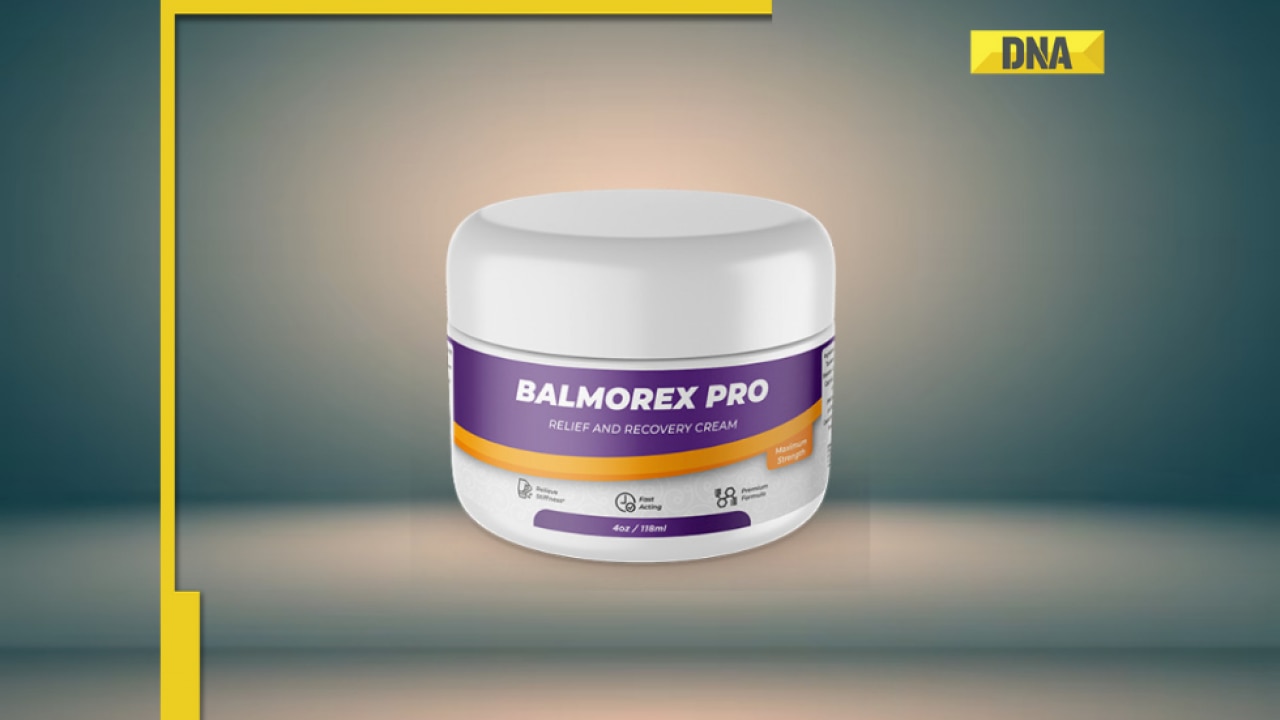

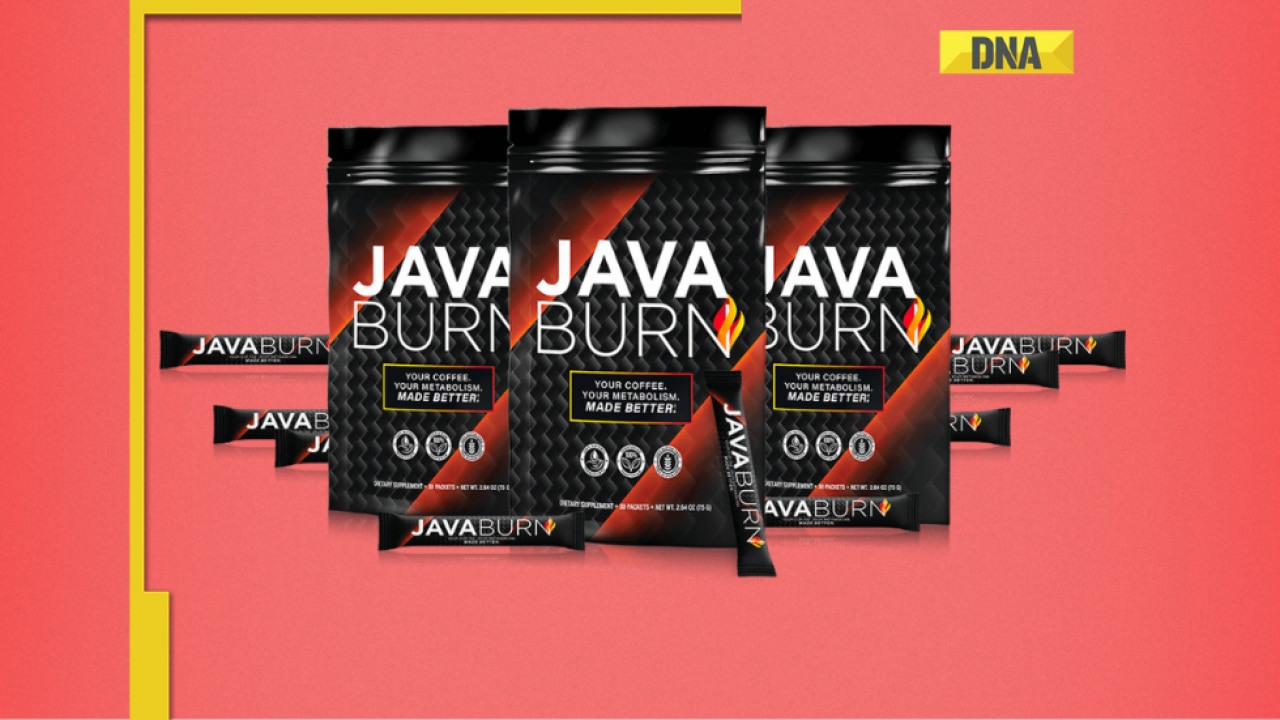
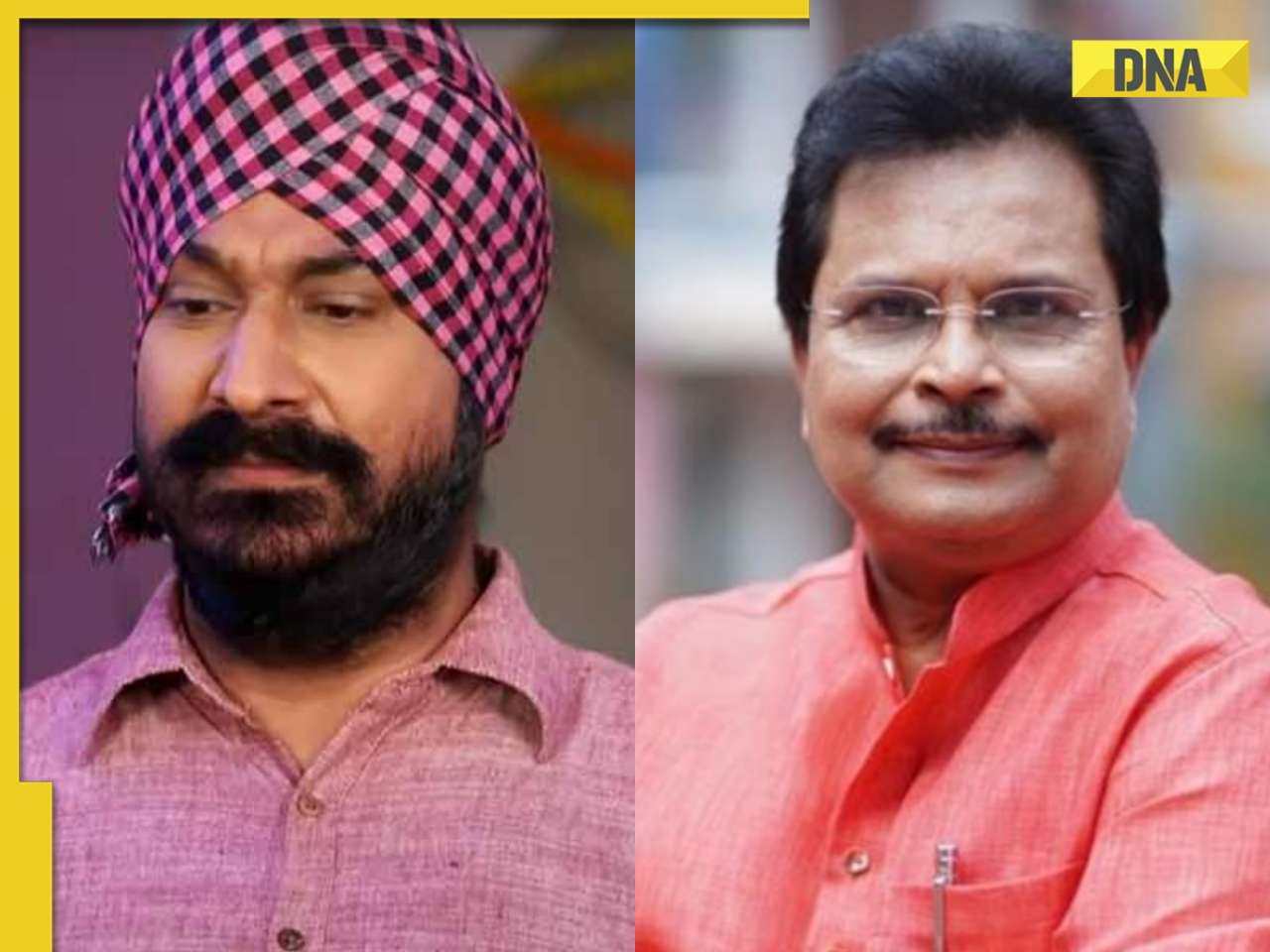



























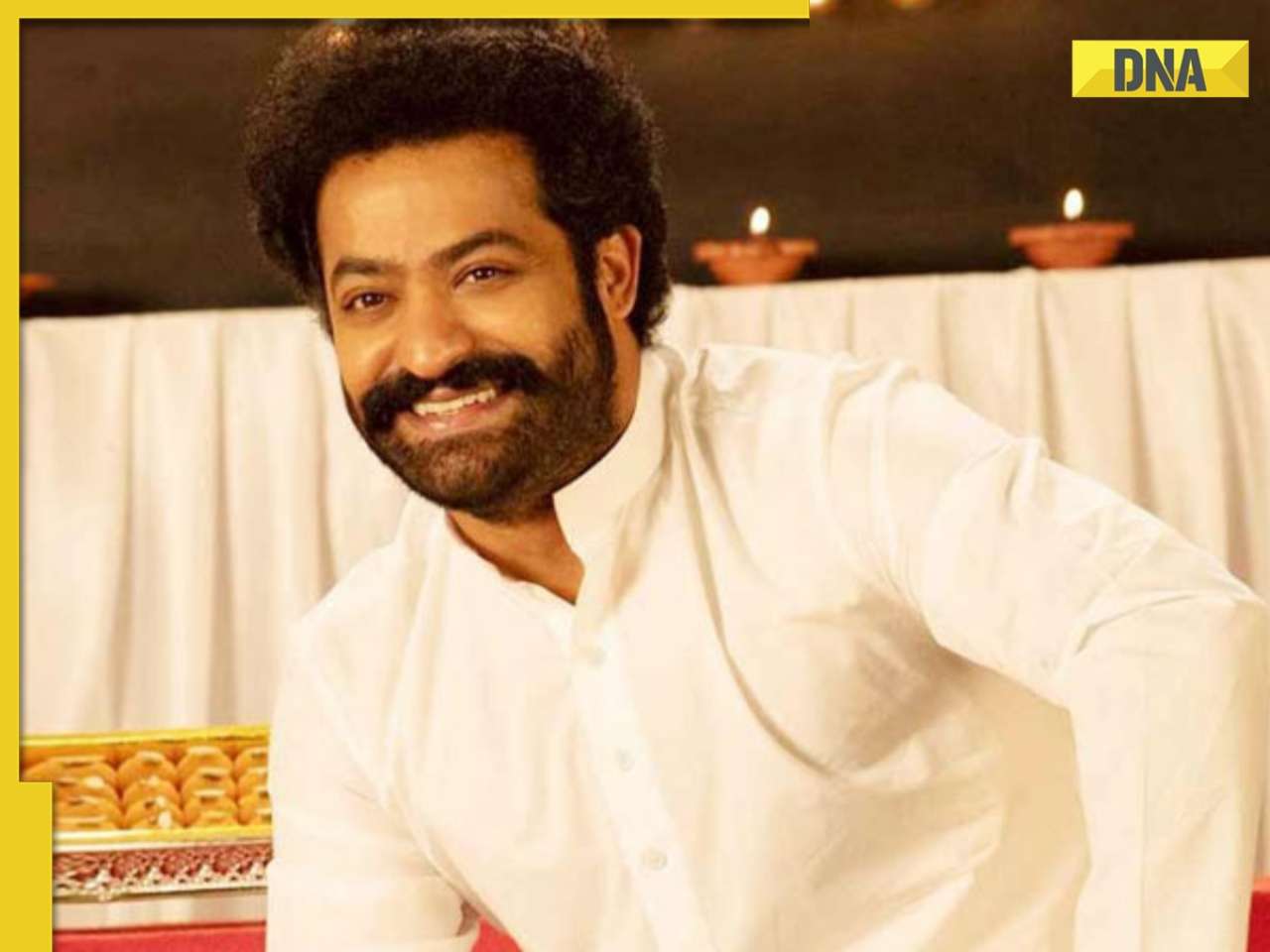
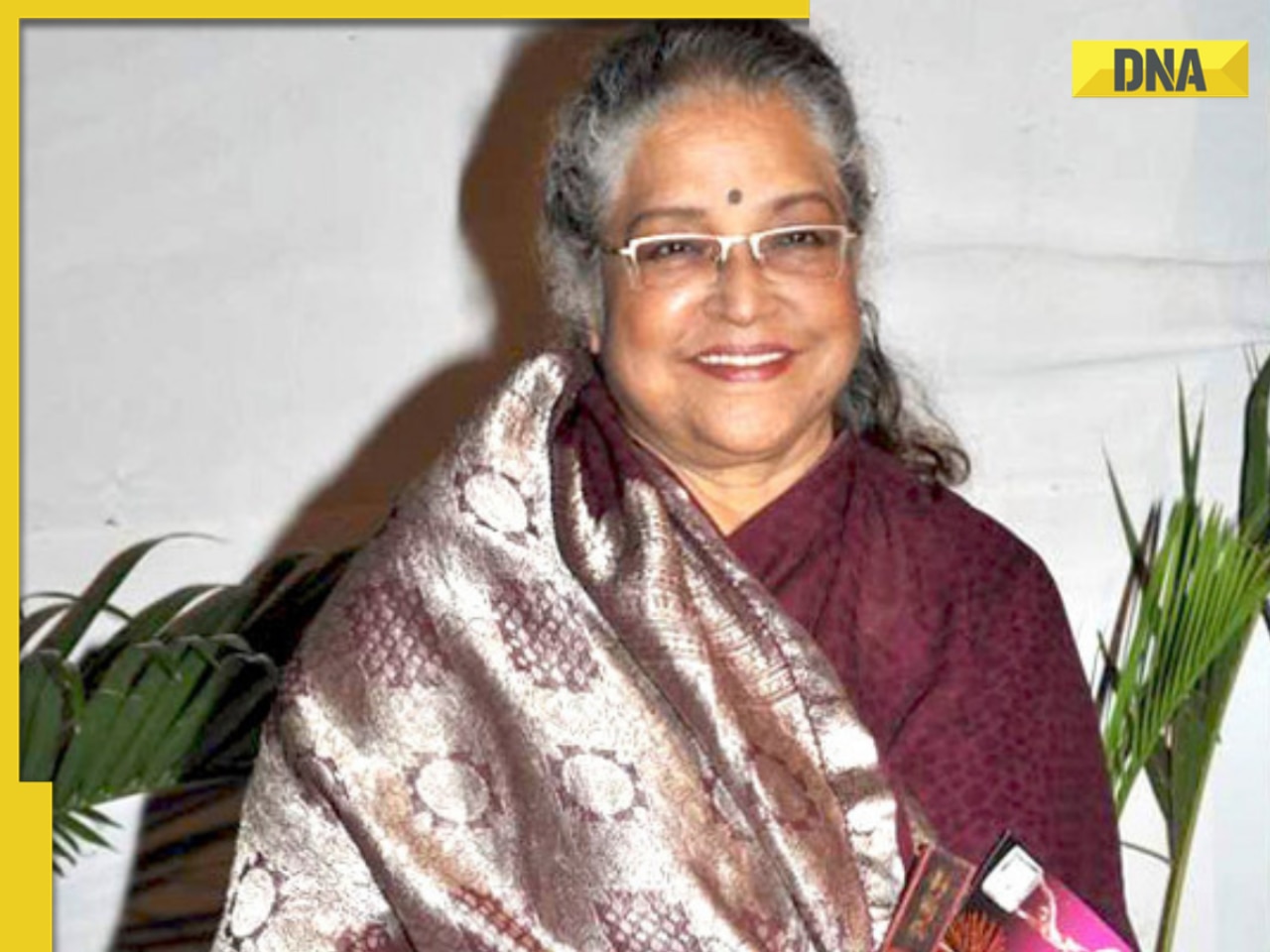

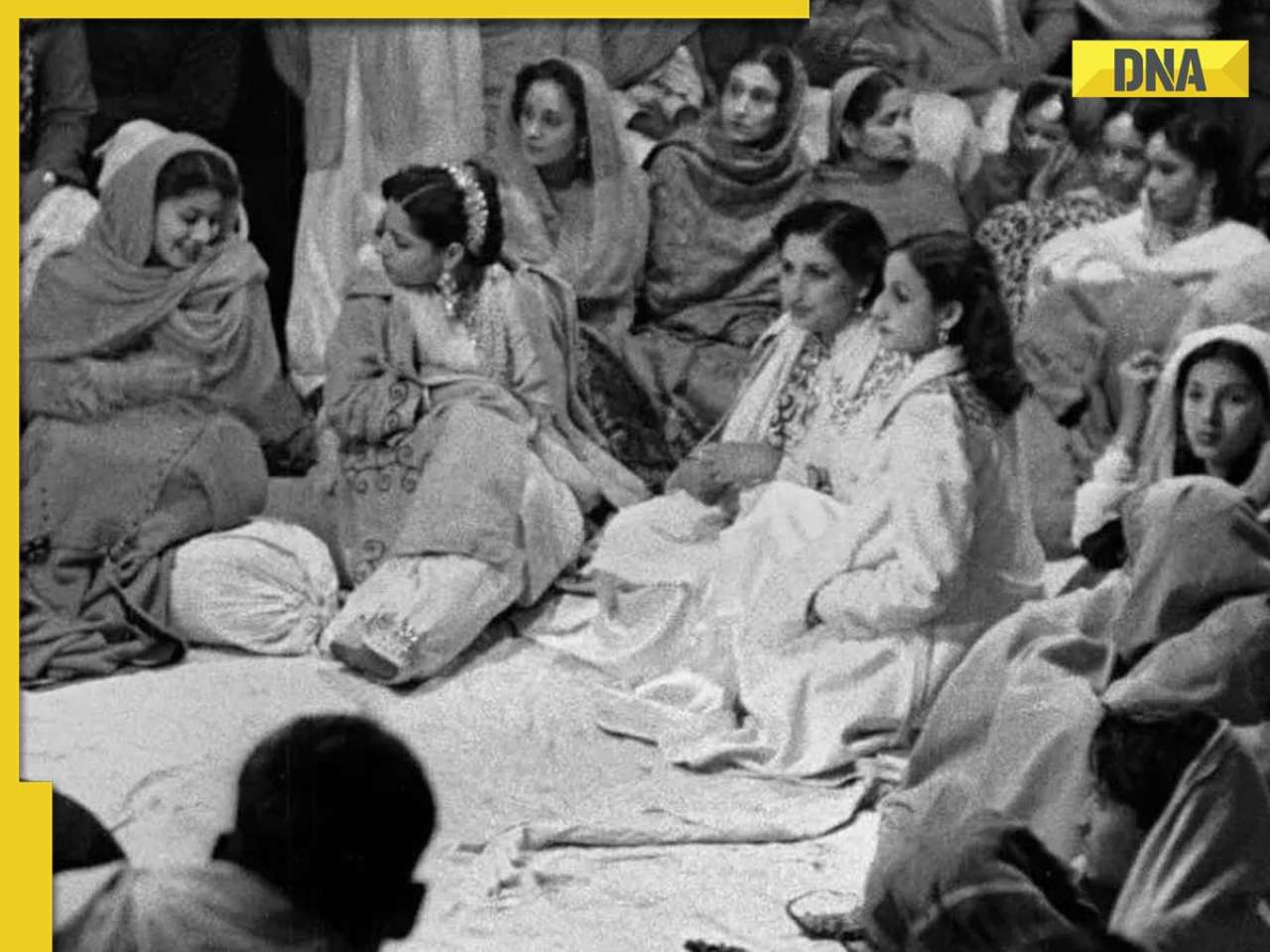





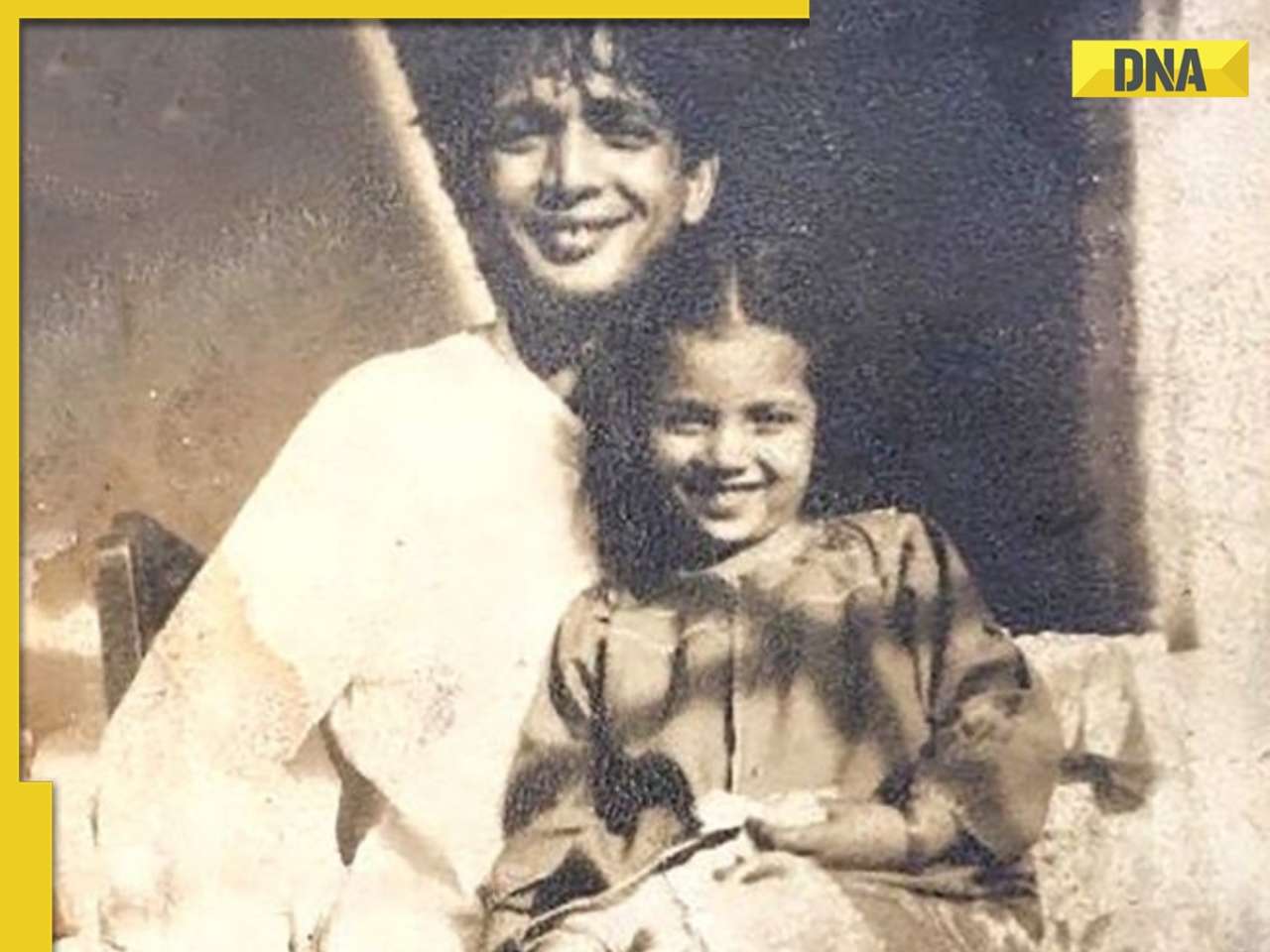
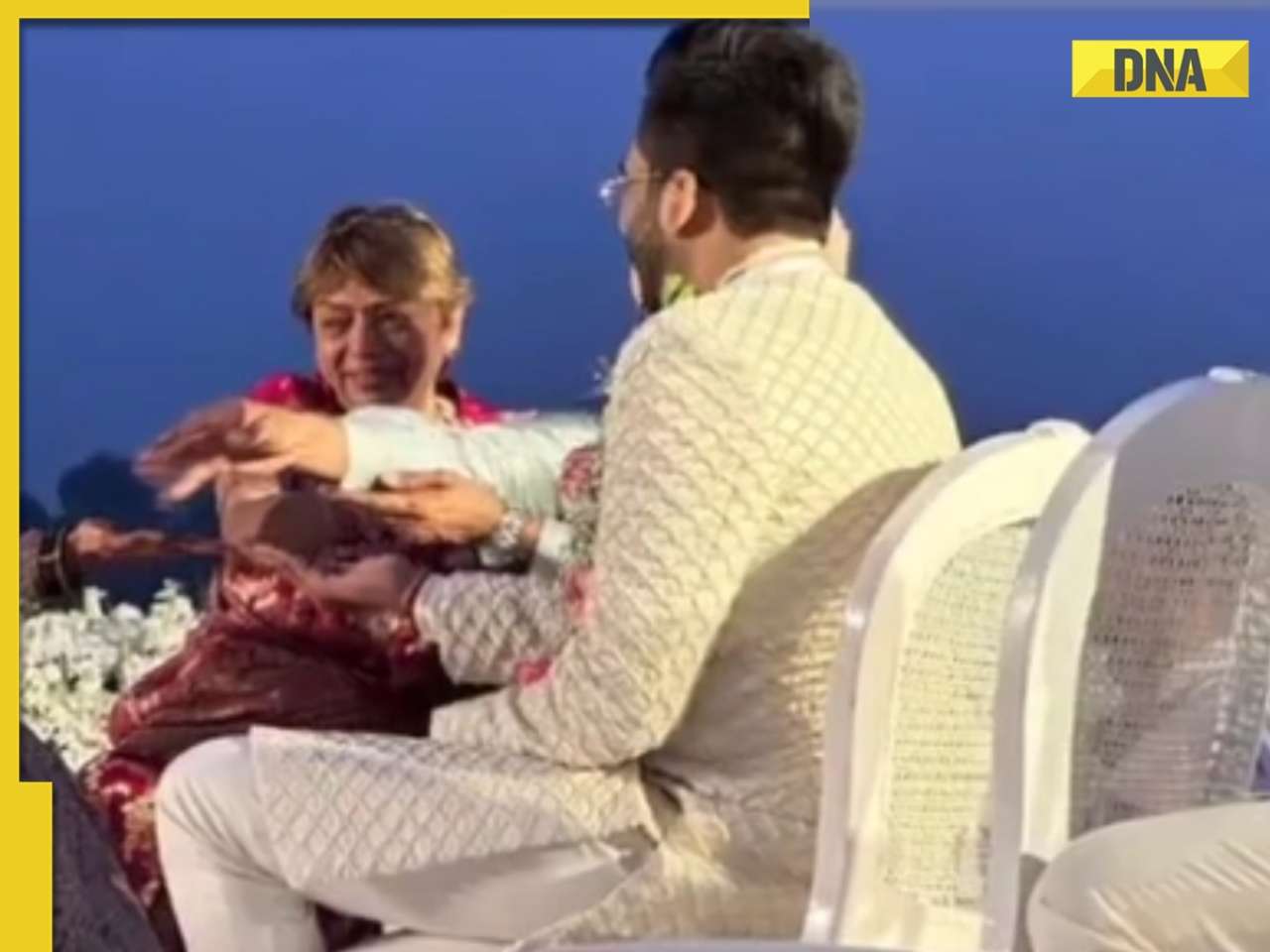















)
)
)
)
)
)